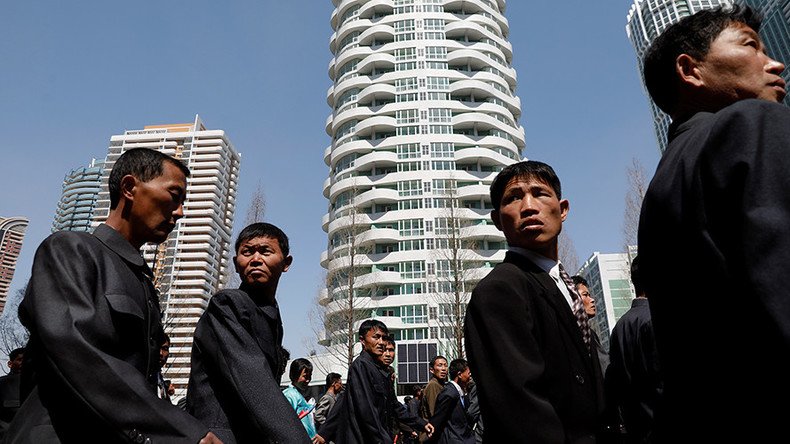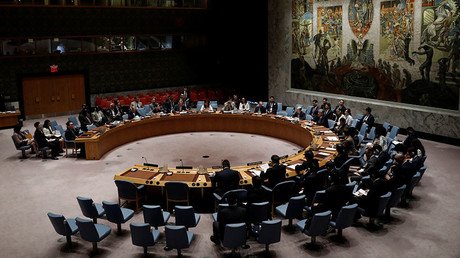US senators aim to impose sanctions on financial entities dealing with North Korea

US senators will soon introduce new sanctions targeting financial institutions dealing with Pyongyang. The bill threatens to expel those conducting business with North Korea from the US financial system.
US Senators Chris Van Hollen (D- Maryland) and Patrick Toomey (R- Pennsylvania) proposed bipartisan legislation on Wednesday aimed at “achieving a nuclear free Korean Peninsula” after Pyongyang’s latest missile test. On July 4, North Korea claimed it had fired an intercontinental ballistic missile (ICBM) which is capable of reaching the US.
North Korea crossed a dangerous threshold by successfully launching an intercontinental ballistic missile capable of reaching Alaska.
— Chris Van Hollen (@ChrisVanHollen) July 12, 2017
The senators want to “fill the gap” in existing restrictive measures by prohibiting banks and business entities to cooperate with the North, otherwise threatening to exclude them from the US economy.
It’s time we send a clear message: The economic consequences will be severe for those who continue to do business with North Korea.
— Chris Van Hollen (@ChrisVanHollen) July 12, 2017
“The bill is designed to offer foreign banks a stark choice: continue business with North Korea or maintain access to the US financial system,” Van Hollen stated on his website. “This legislation will fill an important gap in our current sanctions regime against North Korea by going after the foreign banks and firms that have provided illicit support to Kim Jong Un.”
READ MORE: US sanctions Chinese bank, plans to sell $1.4bn worth of arms to Taiwan
Another author of the bill, Senator Toomey, said that “it is hard to imagine many institutions” would tilt toward North Korea instead of doing business “with any country denominated in dollars.”
“Our legislation will target these intermediaries and facilitators imposing mandatory sanctions and fines on the banks, companies and financiers that conduct business with North Korea,” Van Hollen said, adding that the bill would also authorize the president to sanction foreign governments that are evading international restrictions on Pyongyang.
During a briefing introducing the draft sanctions, Van Hollen said that the existing sanctions against the North Korean regime, including UN Security Council sanctions, are not enough, as the country has managed to find ways to evade through “front companies, business arrangements and alliances,” thus gaining access to the international financial system.
“The key feature of the bill is that it imposes secondary sanctions on financial entities that do business with the North Korean regime, and those who evade sanctions to assist the regime. The bill also aims to enforce existing international law by authorizing tough sanctions on countries that continue to allow North Korea to evade sanctions, or assist the regime in attempts to access international financial messaging services,” Van Hollen said in a statement.
The proposed bill is based on the same model as sanctions imposed on Iran in 2010 and 2012. The measures were “critical in getting Iran to the nuclear negotiating table,” according to Van Hollen.
Russia and China have repeatedly warned against implementation of new restrictive measures as well as military action against the North. Moscow believes that sanctions would lead to a stalemate, and together with Beijing call for “double freezing” – suggesting North Korea stop missile and nuclear activities, while the US and its allies halt war games in the region. The Russian-Chinese initiative was rejected by the US, and held joint live-fire exercise with South Korea on July 8.
Talks of new sanctions renewed following the July 4 missile test carried out by North Korea, claimed to be its first successful ICBM test. Russia insists that the North tested an intermediate range missile and provided evidence from its radar station that tracked the rocket to the United Nations.













